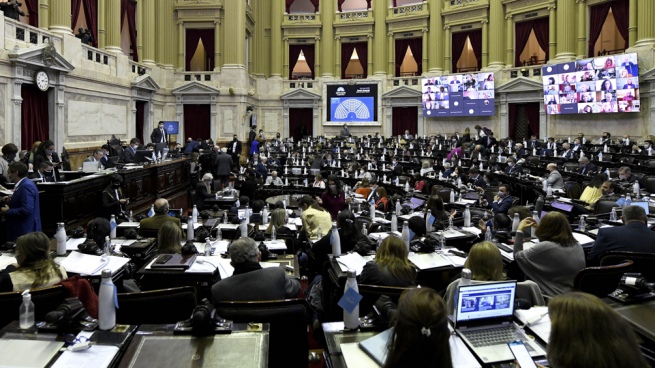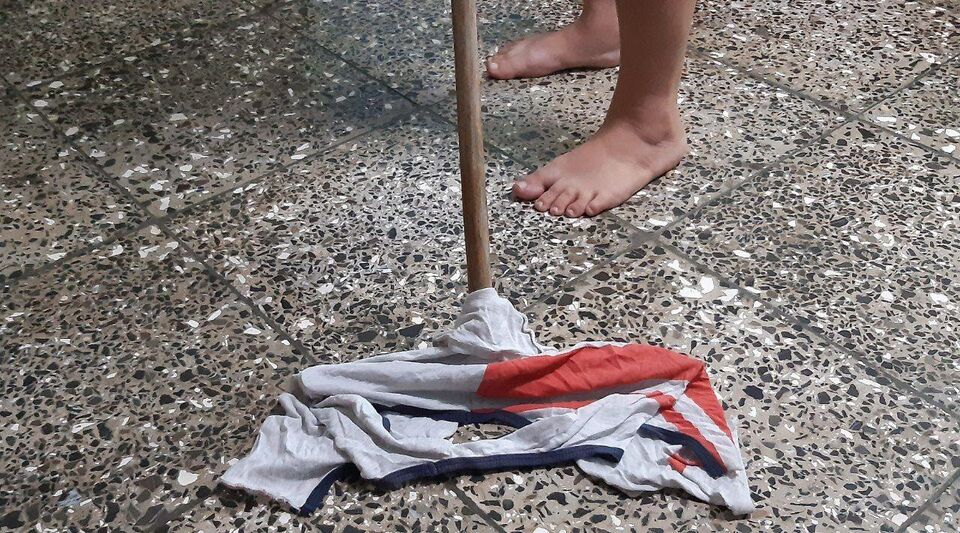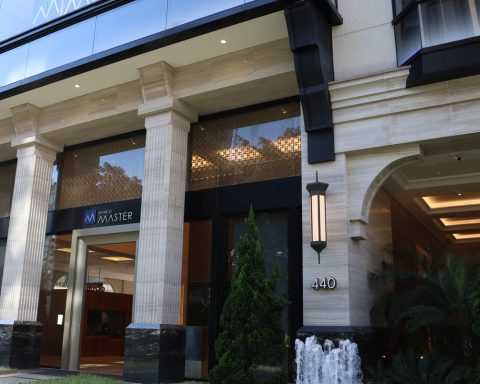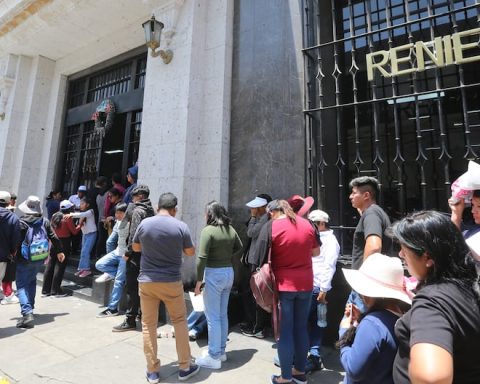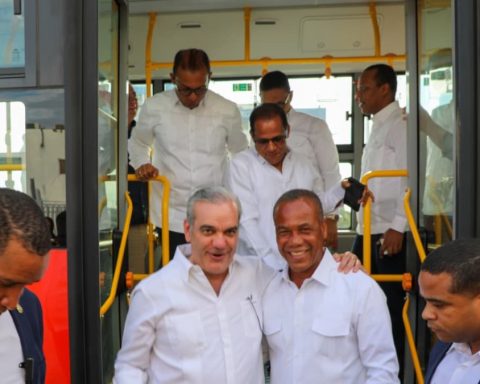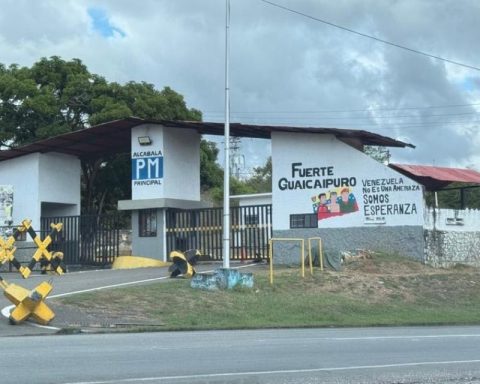More of 2.5 million porteños will go to the polls this Sunday to choose between five political forces that will compete in the general elections for the distribution of the 13 seats in the Chamber of Deputies and 30 seats in the Buenos Aires Legislature that are renewed this year.
In this Sunday’s elections, the predominant lists will include the Juntos por el Cambio (JXC) and the Frente de Todos (FDT), led by the former Buenos Aires governor Maria Eugenia Vidal and the current Buenos Aires legislator Leandro santoro, respectively.
Beyond this central dispute, they will also fight for a seat in the lower house Javier Milei, for Advance Freedom; Myriam bregman, from the Left Front-Unity (FIT-U); and Luis Zamora, of Self-determination and Freedom (AyL).
According to data from the electoral roll, some 2,552,058 porteños are authorized to vote at 7,377 tables that will be arranged in establishments in the 15 communes that the City of Buenos Aires has.

In the category of national deputies -Half of the local Legislature will also be renewed-, the election will determine the distribution of 13 seats, of which JXC risks ten -five from the PRO, three from the UCR and two from the Civic Coalition-, while the other three are brings the FDT into play.
Candidates for national deputies for CABA
A former governor of the province of Buenos Aires, a leader of the Frente de Todos of radical origin and an eccentric right-wing economist are among the offers of candidates for deputies offered by the city of Buenos Aires for the legislative elections that take place this Sunday throughout the country.
Of radical origin, a fan of San Lorenzo, a neighbor of Boedo, father of two daughters and an admirer of ‘Los Redondos’, at the age of 45, Leandro Santoro heads the list of candidates for deputies of the Frente de Todos in the City of Buenos Aires.
The current Buenos Aires legislator of the FdT is a political scientist and teacher at the UBA, active in politics since 1989, when he approached the Radical Youth after the arrival of Raúl Alfonsín to power in 1983, he was president of the Radical Youth, very close to Raúl Alfonsín and currently leads the political space ‘Los Unrompibles’.
Already away from radicalism, in 2015 he was appointed in charge of the Undersecretariat for Institutional Reform and Strengthening of Democracy, during the presidency of Cristina Fernández de Kirchner.
In that same year, he seconded Mariano Recalde, who obtained third place with 21.91% of the votes, as a candidate for vice-head of the Buenos Aires government; and in 2017 he was a candidate for legislator for the Autonomous City of Buenos Aires in a list that obtained 20.8% of the votes and six of the 30 elected legislators.
Santoro is presented supported by Gisela Marziotta, who -after working for more than 25 years in the media- became involved in politics through Peronism in the city of Buenos Aires, and already in 2020 -after being a candidate for vice-chief of Government of Buenos Aires in 2019- acceded to a seat in the Chamber of Deputies by the Frente de Todos, a position that in these elections it aspires to contest again.
In Together for Change, María Eugenia Vidal, former governor of the province of Buenos Aires, decided to make the jump to district again to contest a position in the City of Buenos Aires, this time as a candidate for national deputy.
Born in the Buenos Aires neighborhood of Flores, Vidal thus left the province of Buenos Aires, where she was governor in the 2015-2019 period and in which she ran for re-election in 2019, but was defeated by more than 13 points of difference. by the current governor of the Frente de Todos, Axel Kicillof.
In 2002 he became involved in political life with former President Mauricio Macri. In July 2007 she was elected legislator of the City, a position she held until in May 2008 she was appointed Minister of Social Development of Macri’s first administration at the head of the Buenos Aires government.
In the 2011 elections, Vidal joined the formula as deputy head of government, a position she held until 2015; and in the elections of that year, when Macri was elected President, Vidal assumed the governorship of the province of Buenos Aires.
From the left, the lawyer and former Buenos Aires legislator, Myriam Bregman, defender of Julio López, a witness who disappeared in 2006 after giving testimony against Miguel Etchecolatz, seeks to reach the Chamber of Deputies as a candidate for the FIT, and hopes that this space reaffirms her place as the third force in the country.
The ‘Rusa’, as her friends call her, graduated as a lawyer from the University of Buenos Aires in the 1990s, when she began to serve in the Trotskyist Party of Socialist Workers (PTS).
She was a candidate for head of government of the City of Buenos Aires in 2011 and 2015 for the Left and Workers Front.
Bregman also served as a national deputy between June 2015 and December 2016, following the agreement to rotate the FIT seats.
Since December 2017, he held a seat in the legislature of the City of Buenos Aires, a position he resigned to “comply with what was agreed in the minutes of the Left Front and the Unity Workers, to make way for the rotation of positions between the different forces that make up this front “.
Finally, Javier Milei, the economist who disembarks in politics with a hostile and anti-rights discourse, aspires to convince a sector of the Buenos Aires electorate that sympathizes with liberal political ideas, by presenting himself as a candidate for Libertad Avanza.
Born in the Buenos Aires neighborhood of Villa Devoto, Javier Gerardo Milei has a degree in Economics and has postgraduate degrees in theory and economics. He is also a teacher and radio host.
The economist achieved some public exposure for his debates on television programs and his strong criticism against the governments of Cristina Fernández de Kirchner, Mauricio Macri and Alberto Fernández, although during the campaign he showed approaches and gestures in agreement with the former president of Cambiemos.
In the Simultaneous and Compulsory Open Primaries (PASO) of September 12, JXC obtained 48.19% (841,205 votes); the Front of All 24.66% (430,467); Freedom advances 13.66% (238,552); FIT-U 6.23% (108,758); and AyL 2.65% (46,280 votes).
On that occasion, the vote was carried out in the middle of a health protocol to prevent the spread of Covid-19, which included holding lines outside the voting centers, something that this Sunday will change in order to encourage participation in the electoral act, since in the PASO it barely reached 70%.
Looking ahead to the elections this Sunday, the FdT campaign It was focused on tours of the communes in 30 neighborhood circuits in which a low turnout was detected at the polls, while its main campaign theme was the defense of public space against the advance of real estate projects promoted by the Buenos Aires administration of Horacio Rodríguez Larreta.
In this context, the candidates of the ruling party at the national level gathered more than 50 thousand signatures to reject the project of a nautical district in the Costanera Norte and presented, instead, a legislative proposal to create in the same riverside property where the Costa complex worked. Salguero, a park with free and public access.
In turn, the objective of Vidal’s campaign –who returned to the city after a four-year term as governor of Buenos Aires– was to raise the need to build a block of 120 national deputies of Together for Change, which becomes the first minority in the lower house.
For its part, Milei’s campaign It was based on strong questioning of the “political caste” and on the promotion of its liberal ideas in the economic field, while, by contrast, Bregman – who is competing for a seat – ratified the rejection of the left to an eventual agreement with the International Monetary Fund.
The 30 legislators for the 2021-2025 term
The two and a half million porteños authorized to vote this Sunday in the City of Buenos Aires will also elect the 30 deputies who will occupy a seat in the Buenos Aires Legislature from December 10.
According to data from the National Electoral Chamber and the Buenos Aires Superior Court of Justice, there are five payrolls authorized to participate in the elections to elect the next legislators who will have a mandate between 2021 and 2015 in the local Parliament.
For the Frente de Todos, a list will be presented led by former Defender of the People Alejandro Amor, while Emmanuel Ferrario, former advisor to María Eugenia Vidal when she governed the province of Buenos Aires, will be for Together for Change.
Also, they are running for the Gabriel Solano Left and Workers Front; while La Libertad Avanza has Ramiro Marra as a candidate and the Self-Determination and Freedom Party will do the same with Marta Martínez.
The Buenos Aires Parliament is made up of 60 deputies, of which 30, the exact half, will finish their mandate at the end of the year and their places will be filled by the new legislators who will compete for access to a seat.
The Buenos Aires ruling party, which brings together the political forces that make up the Together for Change (JXC) alliance in the Legislature, will put almost half of its seats into play in the elections in the City.
While the Frente de Todos (FDT), the main opposition bloc, will push to increase the number of current seats since only six of its 17 deputies will finish their mandate in December.
Currently, the Vamos Juntos bloc, which includes legislators from the PRO, the Civic Coalition (CC) and the Public Trust (CP), has 26 seats of its own, to which are added those of the allied forces in Juntos por the Change: nine from UCR-Evolution that responds to Senator Martín Lousteau, two from Socialism and one from GEN, the space of Margarita Stolbizer who joined before the primary elections in September.
Of the 38 seats in total, there will be 21 legislators who will conclude their terms on December 10, ten belonging to the PRO, three to the CC, two from CP, four from UCR-Evolution, one from Socialism and one from GEN.
The Frente de Todos, meanwhile, will bet to raise the number of current seats to 17, since it will only put six of those seats into play, which could allow it, in turn, to increase the bloc that is currently the first minority within Parliament.
Finally, the Socialist Left will put into play the two seats it currently has; while the monobloc Self-determination and Freedom will have to seek to renew the only bank that it has on the premises.
